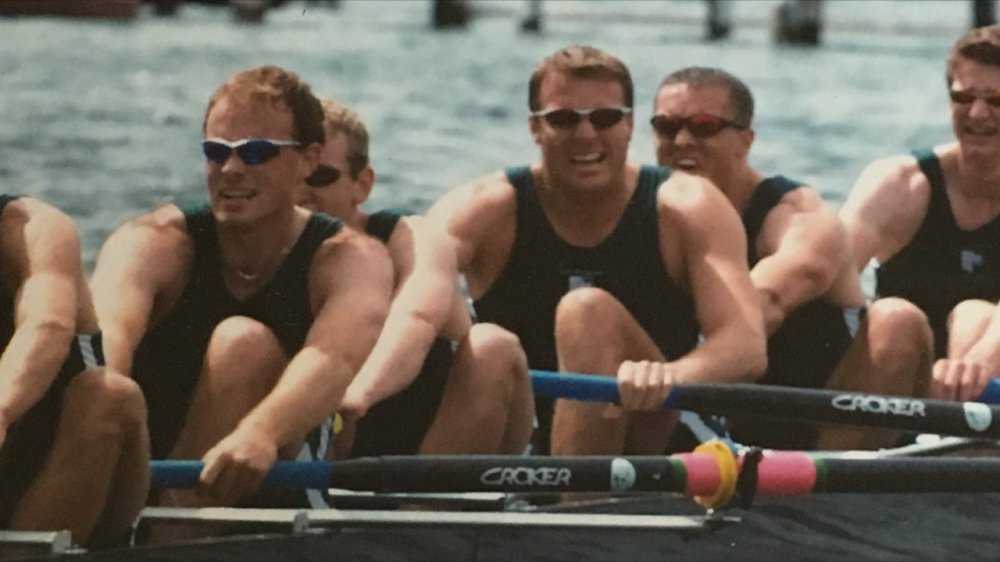CEO's Blog - Why are all of my friends rowers?
I was recently in Devon on a family holiday and was fortunate enough to go for dinner with one of my old crew mates. Nothing too odd in that except that Matt and I hadn't seen each other (bar bumping into each other crossing the road in Putney) in nearly 15 years! My wife was definitely sceptical to say the least, 'Who is this bloke?, What are you going to chat about? Will you recognise him?' The strange thing was I knew we were going to pick up exactly where we left off around the end of 2004 and lo and behold that's exactly what happened. We were straight into boring our respective other halves to tears with stories of races won and lost, ridiculous training sessions set by a lunatic coach and some of the best parties I've been to still to this day!
On the drive home I couldn't get out of my head how it was so easy to pick up a friendship like that and it got me thinking that the same situation could happen with almost every crew I've been lucky enough be in. When I sit back and try to be objective about sport as a whole I just don't see those type of bonds being formed between 5-a-side teams or your average tennis doubles.
What is it about rowing specifically that creates those bonds for life? I think it comes down to the fact that to be successful as an individual in rowing, you are 100% reliant on your team mates not letting you down and you being there for them. There's the obvious things like getting out of bed so the 8 isn't left with 7 but I think it goes much deeper than that. I think it's formed in those split seconds in a race when it's tight and you're faced with a decision; back off the pressure and the pain will go away or drive your legs harder because the person in front and behind is depending on you for their win. You also put yourself through a world of hurt because you know that the crew in the boat are doing the same for you, you're willing to put yourself in pain so that everyone can win.
I think that unique part of rowing, forming bonds by putting yourself through a world of pain because you know the crew is doing the same for you, is a massively undersold long-term benefit of the sport. Imagine if we could create an environment like that with the people we live and work with? Simon Sinek tells a great story about a St. Louis-based manufacturing company called Barry-Wehmiller which, in 2008, suddenly lost 30% of their orders due to the effects of the recession.
The company needed to save millions, so the board and the company's CEO Bob Chapman got together to discuss layoffs. In the end, Chapman refused to let anyone go, so he and the board devised a furlough program, through which every employee would be required to take four weeks of unpaid vacation. But it was how Bob announced the program that mattered so much. He said, "It's better that we should all suffer a little than any of us should have to suffer a lot.'"
The creation of the program at least meant that everyone was safe, and this established security unexpectedly triggered several effects. "Morale went up. They saved $20 million. And most importantly -- as would be expected when the people feel safe and protected by the leadership in the organization -- the natural reaction is to trust and cooperate over the long-term."
I'm 100% convinced of the unique benefits of rowing over and above other sports and moments like seeing Matt after 15 years drive me on to make sure we can deliver #rowingforeveryone.
